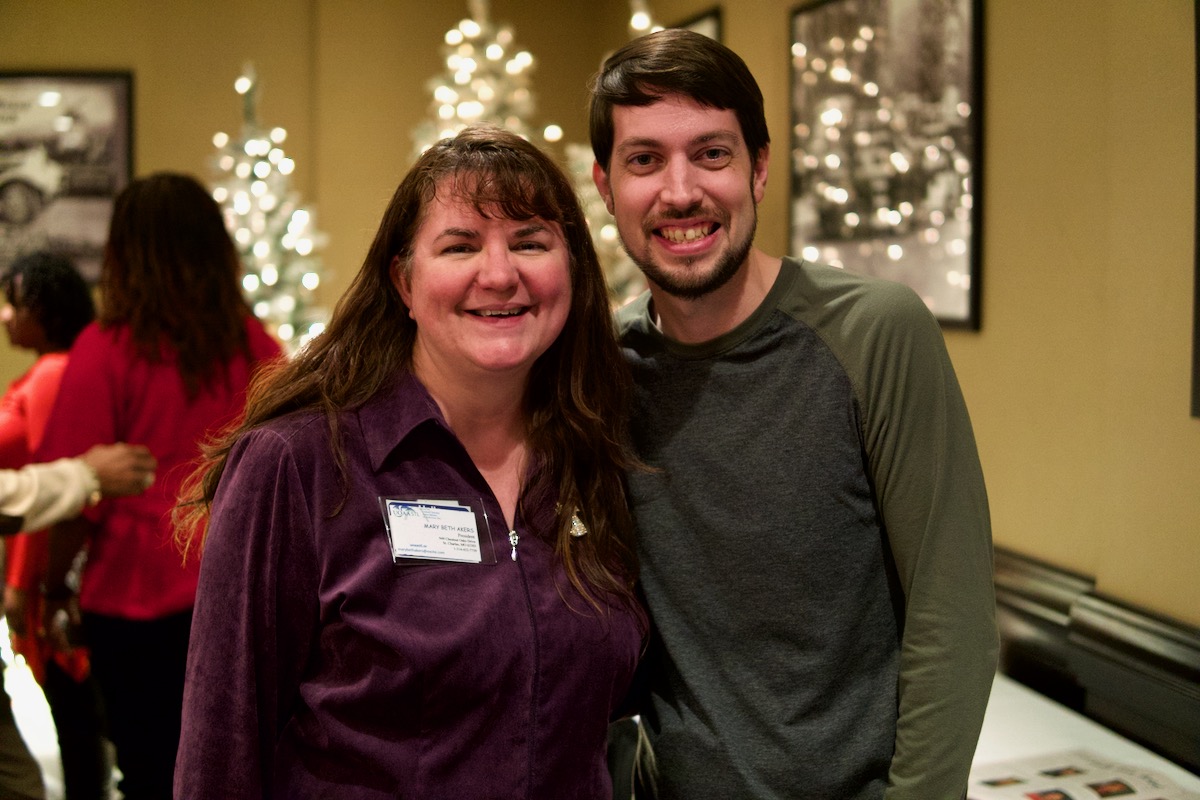I've been involved in open source communities for over a decade. I helped organize events and initiatives, I've donated photography services, and in general I like to give back. For me, a lot of this stems from my faith background—the motto of my Jesuit high school was 'Men for Others'.
But I would consider myself a 'moderately active' volunteer, compared to some. I might give a few hours here and there, or help at a major event for part of the time, but there are people who have a drive and passion for helping others that's far beyond my capacity.
A few years ago, I had a major, life-changing surgery. In researching the surgery and it's life-long impact, I discovered a local support group affiliated with the UOAA organization. I attended a local meetup before the surgery, and met vibrant, healthy people who had gone through the trauma I was about to experience. I kept attending, and now try to ease their anxiety of people who come after.
One of the major drivers of this support group's efficacy—probably the main driver—is the enthusiasm and care of the volunteers who lead it. Most importantly, the current president of the local group, Mary Beth Akers—she has an undying passion for helping those with ostomies (as did the previous local chapter president, who was the national president a few years ago!).
Communities with life in them—a kind of 'infectious enthusiasm'—are so because of a small set of passionate volunteers who give time, love, and individual attention to the group. Meeting Mary Beth reminded me of a few individuals in other communities (Drupal, Ansible, Kubernetes, Raspberry Pi) with similar qualities.
I hate to think of what happens to these communities when they lose a vibrant soul like Mary Beth. And that's one reason I fiercely defend the work and time of what I'd call '10x volunteers' like Mary Beth.

Patient advocacy groups like the UOAA and open source software groups are very much the same in that they grow more by a touch of love and passion than technical merit. It matters less if the UOAA raises a million dollars than if it can improve the lives of ten patients, who can go on and 'pay it forward' in their own way.
Similarly, how effective is an open source project if it can prove some technical merit, but it loses the opportunity to springboard in an entirely new direction or market because it cut off the core group of volunteers who were connecting that software with tens or hundreds of other individuals on a personal level?
What other lessons can we learn and apply to our regional or global communities from individual encounters in local communities like this?
Comments
I would suggest what your seeing is anarchism in action. A lot of people think anarchism represents chaos, but in fact nothing could be further then the truth. Anarchism shows the world that a society without hierarchy can solve many problems.